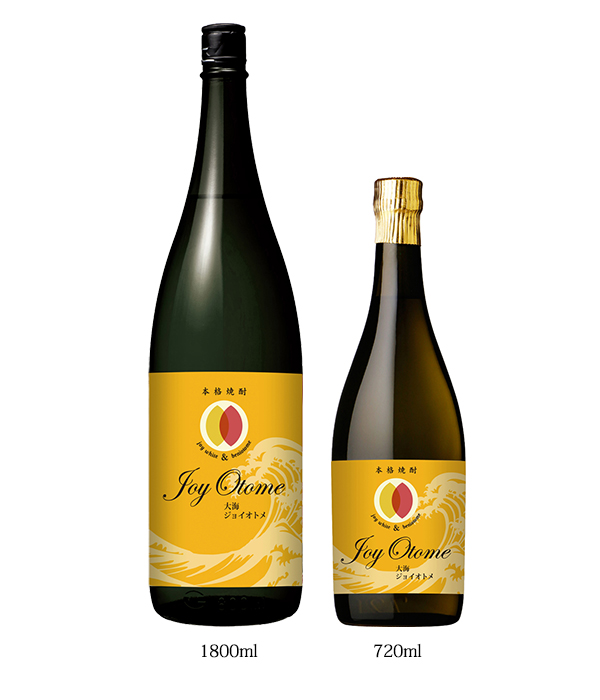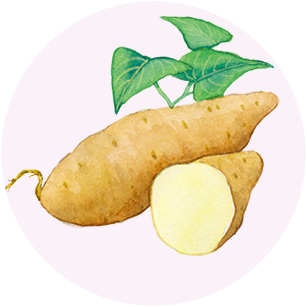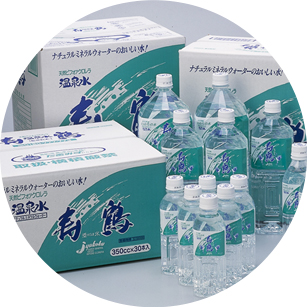Product Information
Limited edition products
Taikai Joy-otome

Taikai Joy-otome was made with the objective to create a taste that will make you ask for two or three more cups during your meals. The wild and rich taste of the beni-otome sweet potato, as well as the light and delicate taste of the joy-white sweet potato, makes for an exquisite collaboration.
- Classification
- Authentic shōchū
- Alcohol volume
- 25%
- Ingredients
- Sweet potato (beni-otome/joy-white), malted rice (produced in Japan)
- Kōji
- White and black kōji blend
- Distillation method
- Atmosphere distillation
- Bottle
- 1800ml/720ml
Aroma/Taste scale

Drinking temperature

For the best drinking experience
On the rocks or mixed with a little bit of ice and water, mixed with 40 to 50°C hot water.
Sweet potato
Joy-white
A variety of sweet potato developed in 1994 specifically for shōchū. It is rich in starch but lacks saccharification enzymes meaning that the starch will not saccharify when heated, in other words, it will not become sweet. Its skin and insides are white and unsuitable as food but perfect for shōchū brewing.
Water used
Jukaku hot spring water
Sakurajima is one of Japan’s most active volcanoes.Looking up to it, is the city of Tarumizu where jukaku water gushes forth from 800m underground. It contains 8.89ppb (parts per billion) of water-soluble germanium which is a hundred times more than the average.
Water-soluble germanium can also be found in plants such as ginseng, reishi mushrooms, polypores, or garlic and has been used for the longest time to maintain health. Natural alkaline ionized water, jukaku, is also rich in natural minerals and is known to have excellent penetrating and extracting power due to its unusually small molecular structure.

LinkJukaku Web site


































